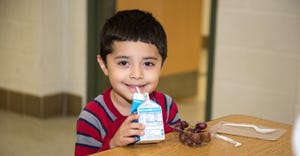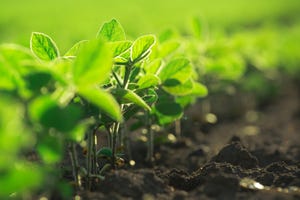Adisseo, Calysta’s alternative protein joint venture breaks ground
Product uses no arable land and almost no water in its production, will be available in China in 2022.
January 11, 2021

A completely new sustainable alternative protein that uses no arable land and almost no water in its production will be available in China in 2022, as work gets underway on Calysseo’s flagship plant.
Calysseo, a joint venture between worldwide animal nutrition leader Adisseo and protein innovator Calysta, is building a first facility in Chongqing, China, which is expected to become the world’s first commercial-scale production facility of single-cell protein.
Delegates gathered at the site for a ceremony to mark the beginning of construction, which will deliver 20,000 metric tons of FeedKind protein in its first phase. A second phase will bring extra metric tons of capacity to the market to meet market demand. The plant will supply the Asian aquafeed market, which represents more than 70% of the world’s aquafeed market.
“Today’s groundbreaking is a landmark moment in the delivery of a disruptive technology that can provide benefits on several levels for Asian aquaculture,” said Jean-Marc Dublanc, Chief Executive Officer of Adisseo. “We are proud to bring the world’s first commercial-scale FeedKind production facility to China in partnership with Calysta.”
He continued, “Adisseo is committed to making strategic investments that can improve the sustainability and security of the Asian feed ingredient market, in the context of continuous growth of world’s population and demand for high quality protein.”
Thomas JG Huot Ph.D., Chief Operating Officer of Calysta and Executive Director of Calysseo, said the event is the culmination of decades of development and “a particularly proud moment for both Calysta and our partners, Adisseo.”
Calysseo’s facility will be the first in the world to deliver a reliable, high-quality alternative protein ingredient using innovative gas fermentation technology, using no arable land and almost no water.
“After a year unlike any other in living memory, I passionately believe this announcement is a hugely positive development and marks the beginning of a new era of sustainable food production.”
FeedKind protein is nutritious, safe, and, importantly, a truly sustainable product that can bring extra value to the Asian aquaculture market and a new level of security to the feed supply chain, Huot noted.
The plant is being built by Calysseo in the Changshou National Economic and Technological Development Area, Chongqing City. The strategic partnership between Adisseo and Calysta will directly address one of the most important opportunities in aquaculture – to provide high quality seafood without adding extra pressures to the environment.
The global aquaculture market is experiencing strong growth and is expected to become the third largest animal protein source, with the production representing more than 100 million metric tons.
Meanwhile, the human population is set to grow to 10 billion by 2050, meaning an increasing demand for proteins.
FeedKind is produced by fermenting natural gas with a naturally occurring bacteria, producing a non-GMO feed ingredient, a safe, nutritious, traceable, and affordable protein.
The alternative protein will also help to reduce pressure on wild fisheries. If used instead of fishmeal, 100,000 metric tons of FeedKind could mean that between approximately 420,000-450,000 metric tons of wild-caught fish could be saved. Used instead of soy, the same quantity of FeedKind could free up as much as 535 square kilometers of land and would save 9 billion liters of water.
“On top of the significant environmental benefits of FeedKind, it is important to recognize the full value of the nutritional characteristics and the extra health benefits verified through live academic trials, which will create additional value for the aquafeed producers via nutritional formulation at a more precise and advanced level,” Dublanc added.
You May Also Like



